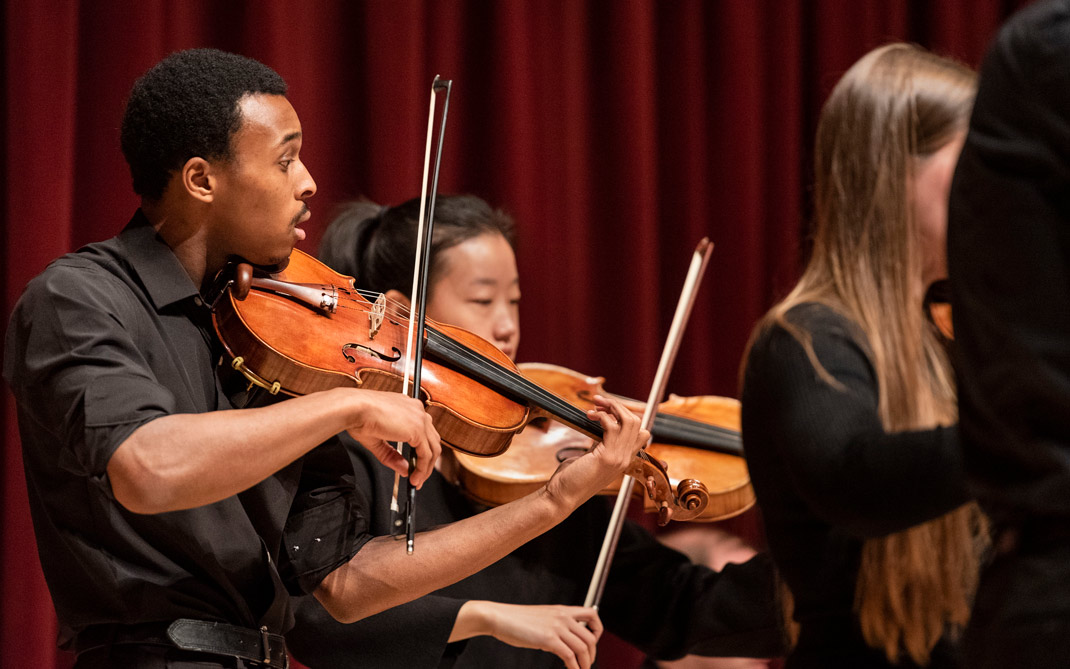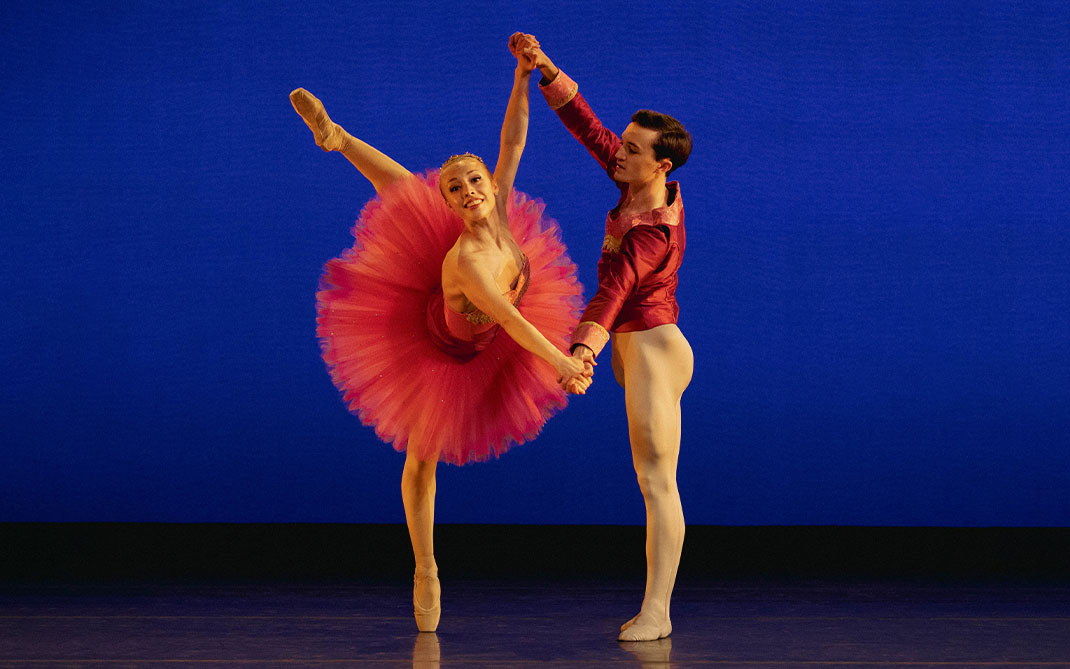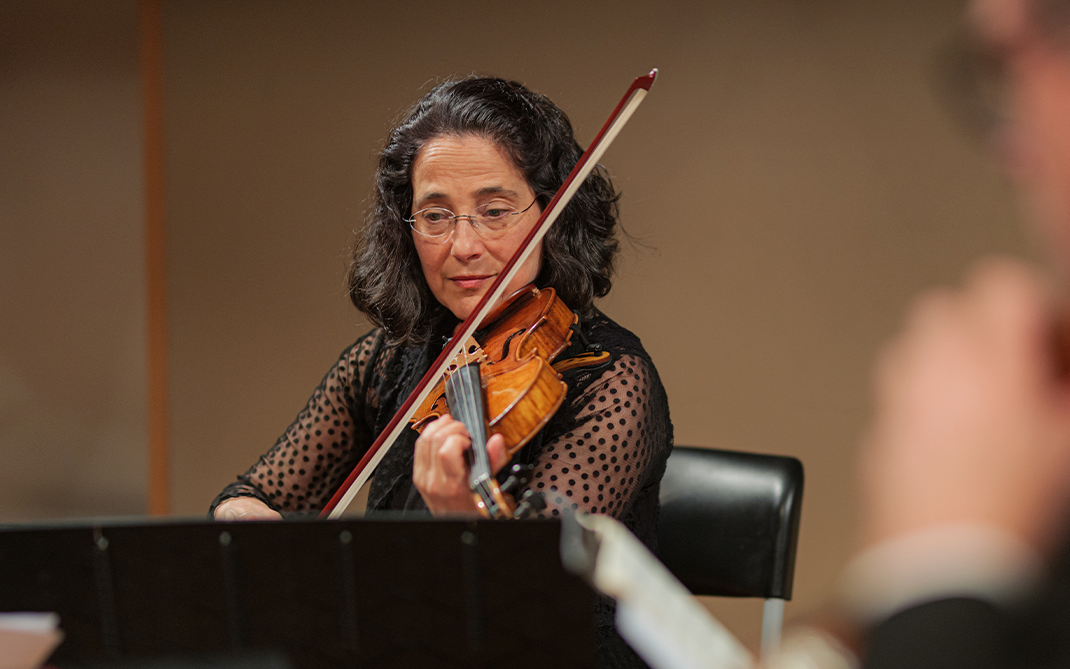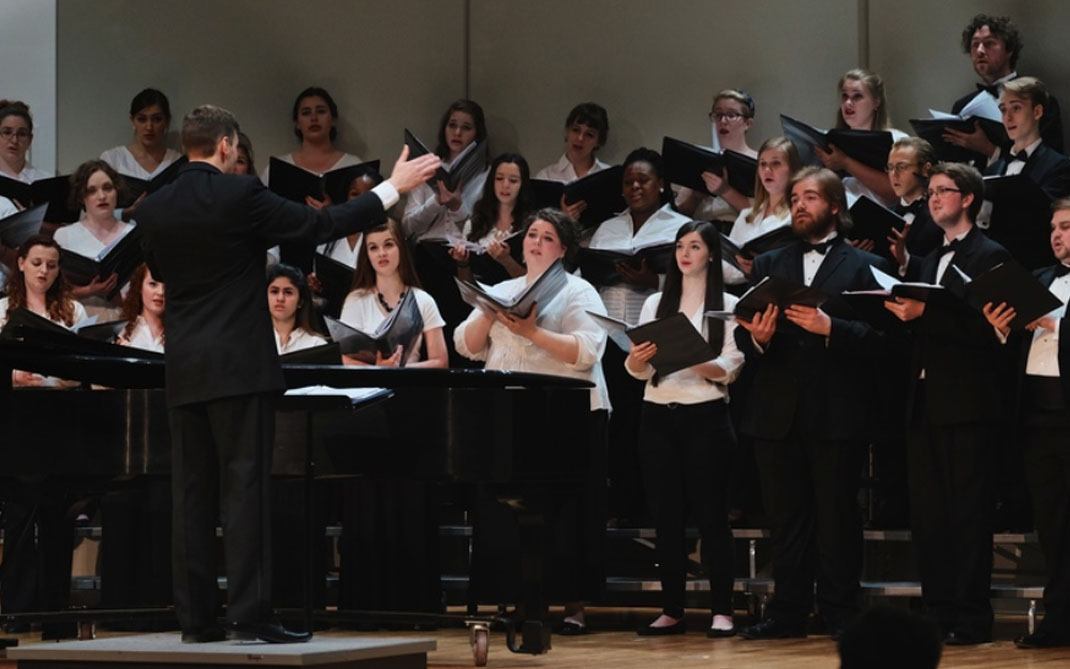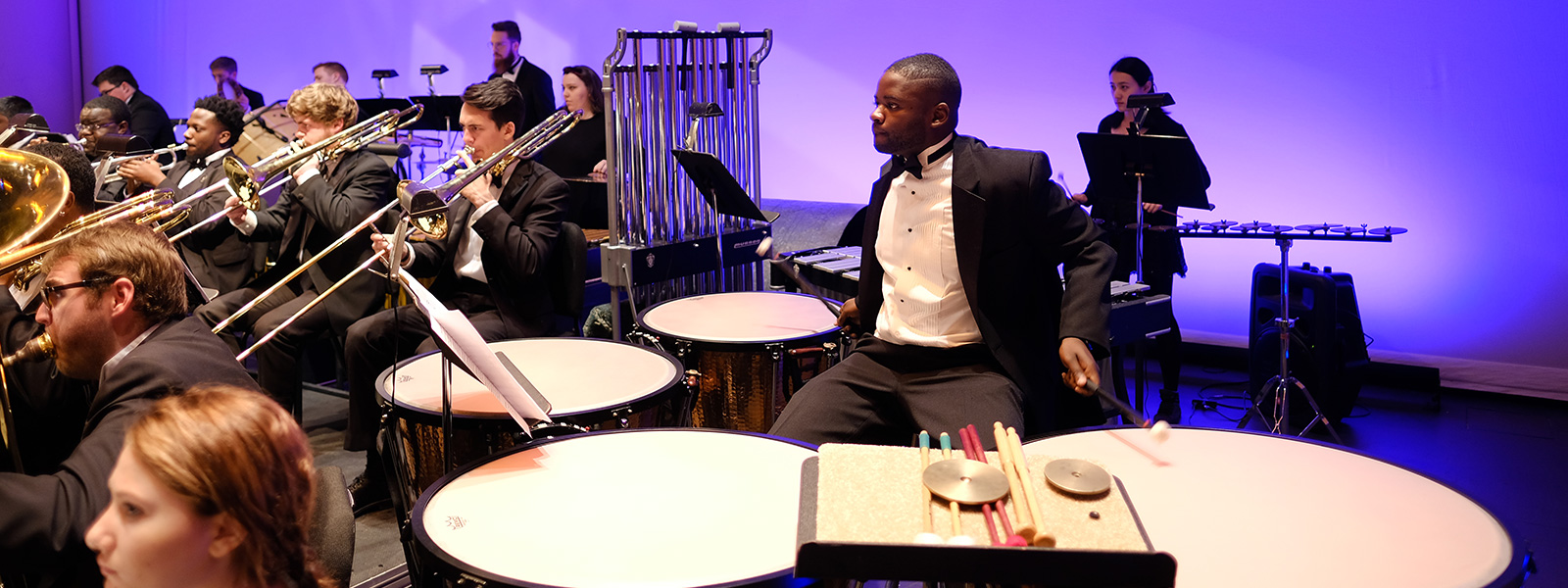Top music schools share these three qualities
What distinguishes top music schools from the others? Brian Cole, Dean of Music at UNCSA says that when evaluating the quality of a music education program, there are a number of factors that set a school apart. These are the qualities a student should explore when he or she is examining a music program:
They assemble a diverse group of talented and innovative artists who are active in today’s music industry.
First and foremost, prospective students should ask: how are a school’s current faculty, students and alumni connected to today’s music industry?
Cole says networking during music school is crucial for a student to form the foundation of a successful career. Building a meaningful network with peers and advanced artists is crucial. “Ideally while students are in school, they are able to make connections to the music industry, so when they graduate they aren’t just getting a start—they are already a part of it.”
This should include not just the music industry as tied to centers like New York and Los Angeles, but all around the world and in diverse ways—a true global sensibility. “Music touches so many parts of life. In addition to the commercial sense of the world, a top music school has touch points to every area where people are making music.”
A strong music school offers many opportunities for partnerships and relationships with not just faculty, but also visiting artists. This kind of collaboration is key to linking students with vibrant musicians—peers, mentors, and teachers on and off-campus.
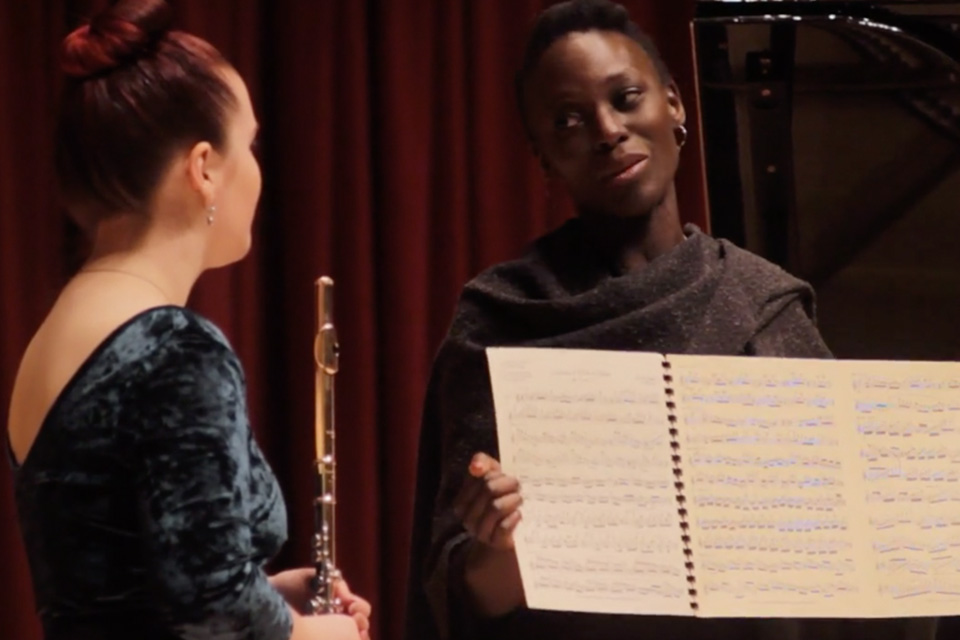
Chamber music ensemble Eighth Blackbird worked with students in UNCSA's School of Music during the spring 2017 semester.
They teach students to be outwardly focused and engaged with the world as performers creators and collaborators.
Great music schools teach students to become outward-focused artists, Cole says. In other words, in addition to skills that are more inward-focused (including technical training), outward-focused programs encourage students to think about how their music can affect the world. Specifically: it’s important to ask about a school’s social action and community engagement. Do faculty and students contribute to community outreach? How are alumni involved in their communities?
It’s important to think about the music industry as an entire ecosystem. And since music touches nearly every area of life, it’s our job to expose students to these opportunities beyond the commercial realm.
Brian Cole, Dean of the School of Music
“It’s important to think about the music industry as an entire ecosystem,” Cole says. “And since music touches nearly every area of life, it’s our job to expose students to these opportunities beyond the commercial realm.”
In addition, an important piece of becoming well-rounded is learning how to become “generative” musicians, Cole says. To be best prepared for a successful career, students must learn how to become creators, in addition to performers. Prospective students should ask how a program equips students to develop skills as creators, such as experience for all students in improvising, composing and arranging.
A strong program is filled with examples of faculty who write, arrange and lead music across many genres. These faculty lead by example to prepare students with the skills to create music now.
Top music schools offer interdisciplinary education.
It’s important that students learn a broad skill set while they are still in school. “UNCSA offers a very unique whole arts campus, where you can receive excellent music training, but in an ecosystem where every possible corner of the performing arts is taught,” Cole says. “Our music students learn and create alongside those from disciplines including visual arts, dance and filmmaking, to name a few.”
Working with other artists gives musicians a deeper understanding of their own art, he says, and prepares them to do work that is multidisciplinary in nature. It’s also important for today’s arts students, including musicians, to learn the fundamentals of business and entrepreneurial culture, which are stressed across the UNCSA curriculum.
“Sometimes I hear from parents who say they are concerned about their children pursuing the arts, but in reality, there are so many opportunities if they get a good arts education,” Cole says.
“There are many career possibilities for a music student,” Cole says. “It’s a field with unlimited potential. The best music schools are educating leaders for the next generation.”
Learn about School of Music programs, alumni successes, student stories and more.
September 18, 2017
